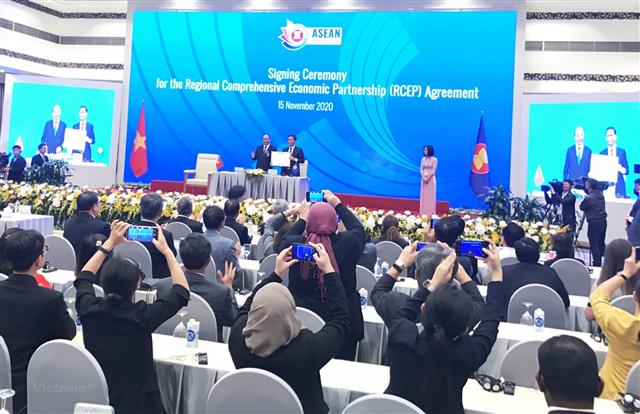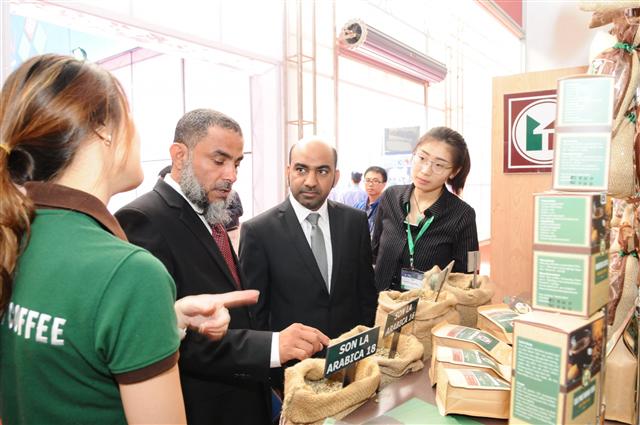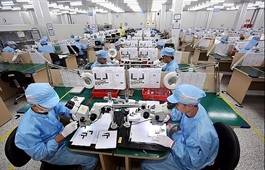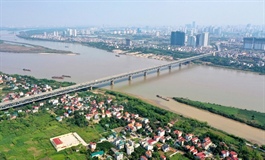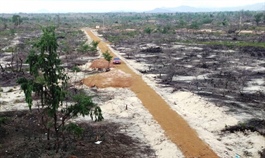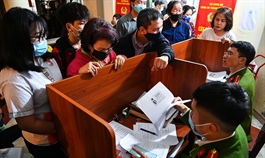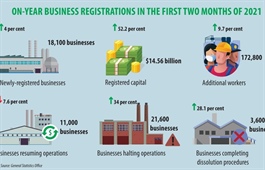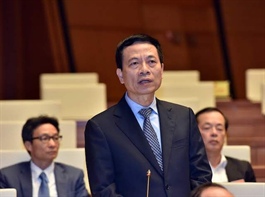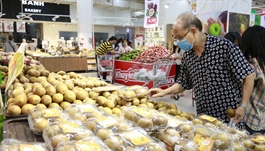Vietnam looks back on decade of global integration, sets future goals
Vietnam looks back on decade of global integration, sets future goals
Vietnam has recorded outstanding achievements in international integration over the past five years. It has signed 15 free trade agreements (FTAs) to date and is negotiating two others. Strategic partnerships have been established with 16 countries, and comprehensive strategic partnerships with 11 others. It has joined over 500 bilateral and multilateral agreements. Over 70 countries have recognized Vietnam as a market economy.
|
Vietnam’s gross domestic product (GDP) and foreign trade value have increased more than 300 and 350 percent, respectively, since the country joined the World Trade Organization (WTO) in early 2007. The achievements are attributed to the leadership of the Communist Party Central Committee, the Politburo, and the Secretariat and Party Committees at all levels.
As the ASEAN (Association of Southeast Asian Nations) Chair 2020, Vietnam coordinated with ASEAN members and partners to promote the signing of the Regional Comprehensive Economic Partnership (RCEP) agreement, affirming its determination to maintain growing cooperation and connectivity, creating a driving force for regional economic recovery. Vietnam promoted the adoption of the APEC (Asia-Pacific Economic Cooperation) Vision 2040 and many initiatives in response to the Covid-19 pandemic and the need to revitalize regional supply chains.
Global economic integration has helped Vietnam’s international trade activities thrive, according to Dr. Nguyen Duc Kien, Head of the Prime Minister’s Economic Advisory Group. From an importing country, Vietnam has worked to balance its imports and exports and now regularly posts a trade surplus, Kien added. This, in turn, improves trust among foreign investors in Vietnam’s stability and economic potential.
Joining FTAs with major economies has helped Vietnam diversify its external economic relations and avoid over dependence on any particular market.
Associate Professor, Dr. Vuong Duc Hoang Quan, Chairperson of the Ho Chi Minh City Union of Friendship Organizations, said assistance in terms of materials and technology in the fields of healthcare, education and capacity building contributed to economic development and strengthened understanding with other countries.
|
New heights, new targets
According to Nguyen Xuan Thanh, member of the Prime Minister’s Economic Advisory Group and senior lecturer at the Fulbright University Vietnam, the new economic development strategy adopted earlier this year by the 13th National Congress of the Communist Party of Vietnam opens up cooperation opportunities with other countries. International economic integration includes the signing and implementation of agreements on such new issues as digital economy and e-commerce, and the development and adoption of long-term cooperation guidelines. Economic cooperation will be deeply adjusted to ensure sustainable development, he said.
US Consul General in Ho Chi Minh City Marie Damour said that Vietnam’s focus on development of infrastructure and energy creates opportunities for cooperation in these fields with American businesses. US companies are interested in digital economic development in Vietnam such as e-commerce, artificial intelligence (AI) and smart cities, she said. US businesses also want to cooperate with Vietnamese partners in aviation, agriculture and education, she added.
Jonathan Moreno from the American Chamber of Commerce (AmCham) Vietnam Board of Governors in Ho Chi Minh City said integration has promoted the relationship between Vietnamese small and medium enterprises (SMEs) and multinational companies as members of supply chains, and their participation in global supply chains.
|
Deputy Minister of Foreign Affairs Bui Thanh Son: Vietnam will prioritize efficient implementation of its commitments under FTAs and economic cooperation mechanisms of which it is a member. |


